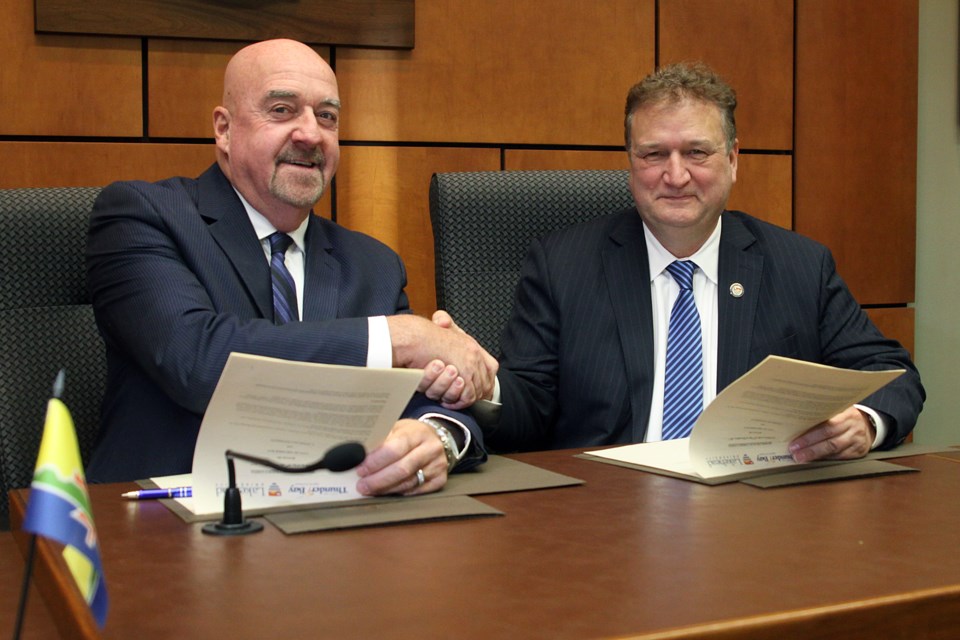THUNDER BAY – With the success of Lakehead University directly intertwined with the future of Thunder Bay, the two organizations have taken the next steps to reinforce that connection.
The university and city officially on Wednesday officially signed a memorandum of understanding to formalize future collaboration, two days after council approved the agreement at their meeting on Monday night.
Lakehead University president Brian Stevenson, who signed the partnership alongside Thunder Bay mayor Keith Hobbs, said the agreement will create a more structured relationship.
“What it means is the city and the university will work together more strategically, looking at the long-term goals of the city are and the long-term goals of the university are and how we can formally work together to create opportunities for economic growth, cultural opportunities, economic development but also downtown development,” Stevenson said.
The shared goals of the partnership include raising the profile of both Thunder Bay and the university, addressing opportunities to make the city a better place to live, work and prosper, and supporting engagement in areas of mutual expertise and interest.
The collaboration will include the formation of a committee, which will meet regularly to explore and discuss potential opportunities.
“I think everything is on the table,” Stevenson said. “I think for us, economic development has been very important since I’ve arrived as I’ve made it very clear how can the university create diversification in the economy, how can we support the creation of jobs, how can we train and educate people and how can we be a cultural supporter of the community.”
Identified areas of collaboration may include joint partnerships, pursuing funding opportunities and advocacy with other levels of government.
Stevenson said the university’s acquisition of the former Port Arthur Collegiate Institute and its conversion to their new law school is an example of where this new framework would have been beneficial.
“It would have been better had we had a grand plan around it,” Stevenson said.
“The impact of PACI and the law school where it is has had a big impact on the surrounding area in terms of restaurants and businesses and I think if we can do that sort of thinking in the future about how we can work together jointly and apply for funds together and work together on what the impact of the university can be or what the impact of the city on the university can be, I think that would work out well.”
Examples of similar memorandums of understanding between postsecondary institutions and their host municipalities are fairly rare, with only Queen’s University in Kingston, Ont. and the University of Saskatchewan in Saskatoon engaging in this kind of formalized partnership.
Coun. Brian McKinnon, who also sits on the university’s board of governors, said the university is a critical economic driver in Thunder Bay and the power of collaboration can make more compelling arguments for funding.
“It’s a more solid proposal when you have municipal and academic people going for the same dollars,” McKinnon said. “If two levels of government look at that and say ‘the city is going in the same direction, knowing the university is a significant part of our economy and our social structure and our cultural structure, maybe we’ll look pretty seriously at it.’”
McKinnon also said a similar partnership with Confederation College would be a “natural next step” but discussions have yet to take place.
